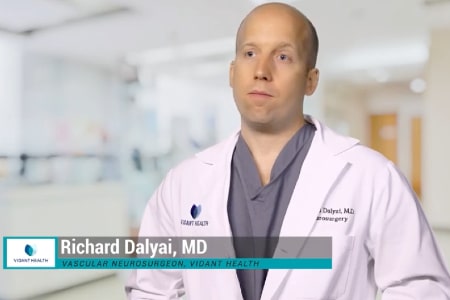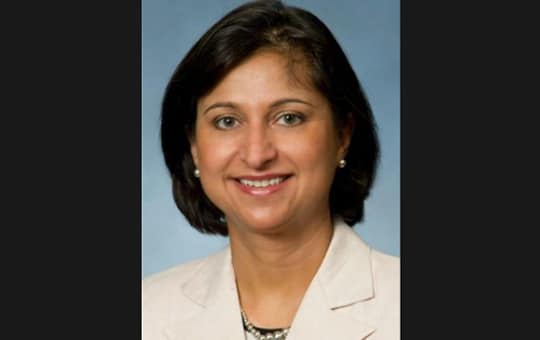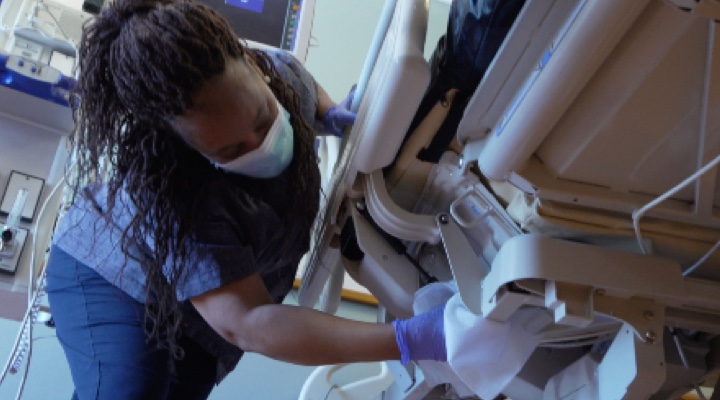As COVID-19 spreads and creates uncertainty in all of our lives, mental health can easily deteriorate. People with pre-existing mental health or substance use struggles can experience more troubles than in the past and others who have no history with mental illness or substance use disorders may experience challenges for the first time.
Glenn Simpson, administrator for Behavioral Health at Vidant Health, said the most important thing people can do during this unprecedented time is reach out for help.
“People can have bad days and can feel down or become a little nervous, but we’re talking about actual diagnostic clinical depression and anxiety and when to seek help for that,” Simpson said. “It’s like anything, when they say if you’re feeling chest pains, what should you do? Call 9-1-1. It’s no different for behavioral health. You don’t have to wait until you know you are extremely depressed. It’s OK to ask as you’re experiencing changes.”
Simpson said substance use disorders are also likely to rise during this time of uncertainty.
While people are in quarantine and perhaps without work, it can create a situation in which people use drugs and alcohol more often.
“Usually when people use drugs, it’s to take away some level of pain, so you can think of it in a very real, physical sense,” Simpson said. “People reach out for drugs and alcohol to feel more comfortable. With people feeling less comfortable with COVID, we’re certainly anticipating that more people will either be misusing drugs or misusing more if they already have been misusing. We anticipate that there will be more folks suffering with substance use disorders.”
North Carolina Gov. Roy Cooper made a proclamation earlier this month to recognize May as Mental Health Awareness Month. In the proclamation, Cooper highlighted that while mental illness can be successfully treated, 60 percent of adults nationwide do not receive the treatment needed.
Simpson said with the technology available and awareness around the toll a pandemic can take on mental health, there are many options for those seeking treatment.
Some of those options include:
- Hope4NC Helpline: 1-855-587-3463
- National Suicide Prevention Hotline: 1-800-273-8255
- Integrated Family Services Mobile Crisis Team: 1-866-437-1821 (available in select NC counties)
- The National Disaster Distress Helpline: 1-800-985-5990 or text TalkWithUs to 66746
- Mental Health America: Text MHA to 741741
- National Alliance on Mental Illness
Simpson said he believes, much like the wave we are experiencing with COVID-19, there will be a wave of patients seeking help for mental illnesses and substance use disorders. He compared it to the aftermath of a hurricane, and said when people are dealing with a damaged home, they will focus on their primary need for housing before seeking care for their mental health well-being.
His hope is that people will seek help before a situation gets too dire for an individual.
“It’s OK to reach out for substance use help and mental health help, just like we do for our physical health,” Simpson said. “We do know that for the most part, a lot of interventions for behavioral health can be done through technology. The technology is there and folks are ready and willing to help – you just have to reach out, and don’t wait too long.”
“We’ve seen patients delay care because they want to see if things will potentially get better on their own, or they don’t want to interact with the hospital or they are concerned about getting COVID-19,” said Dr. Richard Dalyai, a vascular neurosurgeon with Vidant Health.
While Dr. Richard Dalyai understands those concerns, he’s also worried about what it may mean for the stroke patients he serves.
“Patients in eastern North Carolina are about four times more likely to die of a stroke than North Carolina itself,” said Dr. Dalyai. “We know that the treatments that we do are highly effective, but they are most effective within a four, six or eight-hour window.”
Time is of the essence for many of the conditions Vidant treats.
“Eastern North Carolina has a population with a lot of comorbid conditions and chronic conditions, like heart disease and cancer, diabetes, strokes,” said Brian Floyd, chief operating officer for Vidant Health. “We’ve built a health system here to manage that and help people deal with those chronic conditions.”
Vidant is ready and safe.
“Vidant has been working very hard for months now to make sure this is a safe place,” said Floyd.
“Our standards remain the same, of excellent care,” Dr. Dalyai said. “During the pandemic, for patients with COVID-19, as well as for patients without COVID-19.”
Those standards apply to providing sound medical advice as well.
“It’s a confusing time, sorting through medical information that’s available on social media and through the internet,” said Dr. Dalyai. “To get the proper and best information is going to be from your health care provider.”
Vidant has a Community Resource Line available 12 hours a day. That number is 252-847-8000 and answered from 8 a.m. to 8 p.m. seven days a week.
We learned that decisive action by state and local government and a community effort to stay home was the best way to protect those we love.
Now that the curve continues to flatten, Vidant is phasing in the essential care and services, defined as any surgery or procedure that, if not done within four weeks, would potentially harm the patient. This includes select general and orthopedic surgeries, cardiac, vascular and gastroenterology procedures.
Dr. Michael Waldrum, CEO of Vidant, said eastern North Carolina has higher rates of chronic conditions and diseases meaning these essential care and services play a large role in caring for the region. He said it will be important to take a phased approach over time to ensure safety of patients and team members. He said Vidant is using well-established protocols that reflect guidelines and best practices outlined by the Centers for Medicare and Medicaid Services, the U.S. Surgeon General and the Centers for Disease Control and Prevention.
“From the environmental services team keeping Vidant facilities clean and operational, to the interpreters providing an essential service to patients and loved ones — and everything in between — these support team heroes have helped make it possible to provide care during the COVID-19 pandemic,” said Vidant CEO Dr. Michael Waldrum. “I am personally thankful for their work and I know our community is as well.”




